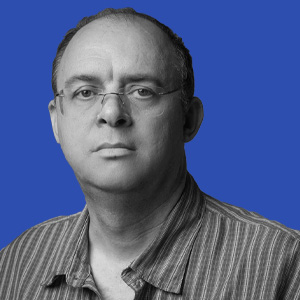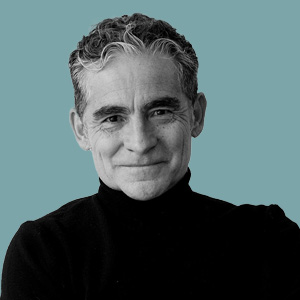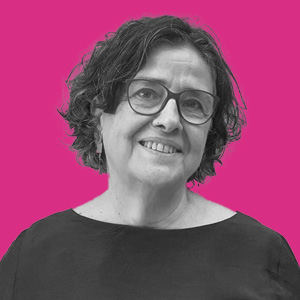RATES
180€
Speaker (normal)
70€
Speaker (student) and residents in Asia, Africa and/or Latin America
30€
As audience
PayPal: asociacionfilosofiayciudad@gmail.com
Transfer (account: ES65 2100 5077 8802 0010 5124)
The city, inseparable from the human being, seems to have been forgotten by its inhabitants. Dominated by the frenzy of the moment and of utility, beauty has taken a back seat in the scheme of common life. The urban space, more than an accumulation of buildings, parks and avenues, is the place where human beings express themselves without fear. The city not only guarantees stability, but also allows for encounters and dialogue, since the full development of the human being takes place in a setting full of particularities. The human being does not only exist in the environment but shapes it in such a way that it expresses its interiority.
Today, in the face of a bleak outlook for ethics, art appears as the last attempt to safeguard the intimacy of the human being, his deepest desires and longings. This mode of expression refuses to forget the spirit and transcendence, so that aesthetics, more than ever, seems the only way to not forget who we are.
Hence, in view of this situation, the V International City and Philosophy Congress, City and Beauty, aims to reflect interdisciplinarily on the following questions: Is it possible to combine city and beauty? Can beautiful environments provoke good acts? Is a beautiful space capable of encouraging better behavior in its inhabitants? What is the relationship between public space and beautiful space? In addition to ethics and politics, is aesthetics necessary? Why reflect on the beautiful city when migration, poverty, pollution and other challenges seem much more urgent?
“The beauty, justice, and prudence of the city have the same capacity and the same form as the virtues by whose participation a just, prudent, and moderate man is called”.
Aristotle, Politics, 1323b 29.
01
Urban beauty and its paradoxes
02
Urban identity and architectural, urban, landscape and artistic innovation
03
Heritage, culture and historic preservation of cities and their beauty
04
Architecture, design, urbanism and ecology
05
The city in history: paradigms, theories and ideal models of beauty
06
Utopian and dystopian cities
07
Friendly and humane cities: habitability, care and accessibility in the city
08
Urban philosophy: philosophy for the contemporary city
09
Urban human geographies: plural and diverse spaces, uses of urban disorder and dissonant beauty
10
The right to public and beautiful spaces
11
The socio-political dynamics of today's cities
12
Technocracy vs. habitability: beauty in parentheses
13
Therapeutic beauty: urban stress
 FORMAL RULES
FORMAL RULES
For abstract submission
-
The title, abstract and keywords should be sent in Spanish and English.
-
The abstract should have a minimum length of 250 words and a maximum of 275 words.
-
The number of keywords will be 5.
-
If the communication has been produced in the framework of a research project obtained in competitive concurrence, tise information may be indicated in the section “observations” without counting in the number of words.
-
It is compulsory to indicate the thematic line in which you want the abstract to be evaluated, and, on a voluntary basis, a subsidiary thematic line in case the evaluation committee considers that the content of the communication does not fit with the thematic line to which it has been sent.
-
The abstract must be sent to asociacionfilosofiayciudad@gmail.com
 SCHEDULE
SCHEDULE 
Dates and deadlines for authors
30
JUNE
Abstract Submission
30
JULY
Acceptance of abstracts
10
SEPTEMBER
Deadline for registration
26-28
NOVEMBER
Celebration of the Congress
Program

November 26
| 9:30 | Registration |
| 10:00 | Inauguration (UP authority) |
| 10:15 | Auditorio. Lecture Marta Llorente: How to see without being seen? Gazes upon the city from a distance. |
| 11:30 | Coffee break |
| 12:00 | Concurrent sessions |
| 16:00 | Concurrent sessions |
November 27
| 08:00 | Concurrent sessions |
| 10:00 | Auditorio. Lecture Felipe Leal: Is there beauty in the city? |
| 11:30 | Coffee break |
| 11:45 | Concurrent sessions |
| 19:00 | Congress dinner |
November 28
| 10:00 | Concurrent sessions |
| 12:00 | Coffee break |
| 12:30 | Auditorio. Lecture Graham Harman: Rossi, Plotinus, and the City of Emanation |
| 13:30 | Closing |
26 de noviembre
12.00-13.30h
Moderan Iris Díaz Carrasco y Juan Francisco Rodríguez Gamal.
Salón C-3. Edificio Central.
- Iris Díaz Carrasco, Universidad de Granada & Juan Francisco Rodríguez Gamal, Universidad de Granada, “Ciudad inteligente y habitabilidad: análisis comparativo de intervenciones urbanísticas en España desde la perspectiva del derecho a la ciudad”.
- Giovanni Perea Tinajero, Universidad Nacional Autónoma de México, “Conceptos para una idea de la filosofía urbana en América latina”.
- Mariana Flores García, Universidad La Salle Bajío, “Habitabilidad y Belleza Urbana: Modelo Prospectivo de Vivienda Social Digna en León Guanajuato 2050”.
- Derly González, Universidad del Valle, Cali, Colombia, “Ejemplos de una producción del espacio en Lefebvre en aras a un espacio diferencial”.
Modera Julia Urabayen.
Salón C-4. Edificio Central.
- Julia Urabayen, Universidad de Navarra, “Los cuerpos, esos los lugares en los que se inscriben y escriben las utopías, las heterotopías y las distopías”.
- Isabel Argüelles Rozada, Universidad de Oviedo, “La estética onírica en la ciudad: la deambulación como hauntología”.
- Leyson Orlando Ponce Flores, Universidad Nebrija, “Performar la ciudad: Cuerpo y paisaje entrópico de un laboratorio en perspectiva de acción disruptiva”.
- Alejandro Jiménez Delgado, Universidad de Málaga, “Del desapego al compromiso: el desarrollo de un habitar comunitario y sostenible a través de la estética del cuidado”.
16.00-17.30h
Modera María Emilia Orendáin.
Salón C-3.Edificio Central.
- María Emilia Orendáin, Universidad Panamericana, “Luis Barragán, el mago del espacio”.
- Rubén Romo Gamboa, Universidad Panamericana, “La belleza en la arquitectura: un análisis conceptual desde Aristóteles y Platón”.
- Derly González, Universidad del Valle, Cali, Colombia, “Kandinsky y Salmona: la influencia de la pintura en la obra arquitectónica”.
- Dorelia Barahona presenta: Dorelia Barahona, Ciudades emocionadas. Jardines, parques y espacios para la esperanz, Editorial Universidad Nacional de Costa Rica.
Moderan Octavio Flores Hidalgo y Verónica Lorena Orozco Velázquez.
Salón C-16. Edificio Central.
- Octavio Flores Hidalgo, UPAE, & Diana Vázquez Bañuelos, Consultora, “La Utopía del proyecto urbano, caso Ciudad Modelo AUDI”.
- Jorge Medina Delgadillo, UPAEP, “‘La belleza salvará al mundo’, una reflexión sobre la belleza como generadora de bien común”.
- Verónica Lorena Orozco Velázquez, UPAEP & Ma. Teresa Cordera Arce, Archivo Histórico Municipal de Puebla, “De la traza ideal al laberinto urbano: el Centro Histórico de Puebla entre la utopía fundacional y la distopía contemporánea”.
- Porfirio Eduardo Lugo Laguna,BUAP, & Greta Lukoševičiūtė, Arquitecta, maestría en urbanismo, doctorante en procesos territoriales, “Estética, bienestar y planificación: hacia una gestión territorial sensible en la ciudad de Puebla”.
27 de noviembre
8-9.30h
Modera Iñaki Robles Elong.
Salón C-4. Edificio Central.
- Iñaki Robles Elong, UPV EHU, “La estética urbana de la precarización contemporánea de la existencia. Una propuesta de análisis para la ciudad de París”.
- Cristina Soria Valdés, Universidad Autónoma de la Ciudad de México, “¿De quién es la belleza? Estética y derecho a mirar en la ciudad contemporánea”.
- Leticia Millán Fanconi, Universidad Complutense de Madrid, “Paisajes del desencanto: la ciudad posmoderna en la poesía española reciente”.
- Esperanza Marrodán Ciordia, Escuela de Arquitectura, Universidad de Navarra, “Paisaje terapéutico. La naturaleza urbana como refugio y terapia”.
- Michell Giovanni Parra Alvarado y Jorge León presentan: Michell Giovanni Parra Alvarado, Nunca fuimos humanos. Paradojas y garantías de la constitución transhumanista, Instituto Sonorense de Cultura, 2025.
Modera Macarena Iribarne González.
Salón C-16. Edificio Central.
- Macarena Iribarne González, University of Wollongong/Australian National University, “La influencia de Charles Fourier en México durante el siglo XIX”.
- Luis Gómez Romero, Universidad de Wollongong, “De Santa Fe a 'Nuevo Orden': la utopía herida de Vasco de Quiroga”.
- Roberto A. Rivadeneyra Q., Universidad Panamericana, “Apología de la utopía, Paradigmas morales a partir de la República de Platón”.
- Claudia Aguilar, Universidad de Buenos Aires/Universidad Nacional de La Plata/CONICET & Lautaro García, Universidad Nacional de La Plata, “Mundos de papel: Margaret Cavendish, la utopía y sus habitantes”.
11.45-13.15h
Modera Michell Giovanni Parra Alvarado.
Salón C-4. Edificio Central.
- Michell Giovanni Parra Alvarado, Tecnológico de Monterrey Campus Sonora Norte, “La ciudad siempre fue una contingencia artística. Teoría de la ficción figurativa y terraformación postcibernética”.
- Iris Díaz Carrasco, Universidad de Granada & Juan Francisco Rodríguez Gamal, Universidad de Granada, “El derecho al espacio público bello en la ciudad algorítmica: desafíos de la inteligencia artificial generativa”.
- Anna Bugajska, Ignatianum University, “The Architecture Of Values: Beauty And The Digital City”.
- Alba Elizabeth Huitron Villegas, Universidad de Monterrey, “Los jóvenes universitarios como agentes responsables para una ciudadanía más humana y amable”.
Modera Mikel Martínez Ciriero.
Salón C-5. Edificio Central.
- Mikel Martínez Ciriero, Universidad de Navarra, “Belleza y tragedia en la ciudad de Platón”.
- Ricardo Pinilla Burgos, Universidad Pontificia Comillas & Angelo Valastro, Universidad Pontificia Comillas & Norberto Fuentes, artista plástico, “La belleza ama ocultarse”.
- Begoña Miralles Arrondo, Universidad de Navarra, “La belleza inesperada: expresiones estéticas en el espacio urbano cotidiano”.
- Aldo Perán, Universidad Diego Portales, Chile, “¿Qué significa pensar? Simone Weil y la experiencia de vida en la fábrica”.
28 de noviembre
10.00-12.00h
Moderan Inés Olza y Anna K. Dulska.
Salón C-3. Edificio Central.
- Inés Olza, Universidad de Navarra & Anna K. Dulska, ICS Universidad de Navarra, “¿Qué puede aportar la lingüística al estudio del patrimonio histórico y artístico de las ciudades? Paisaje lingüístico y gestión del patrimonio judío en ciudades de Navarra”.
- Beatriz Sanz Alonso, Universidad de Valladolid, “La belleza de la denominación de calles y plazas”.
- Alina Esperanza Martínez Ceballos, Instituto Municipal de Cultura y Arte (IMCA), México, “Reconocer, declarar y preservar: un estudio de caso sobre la declaración patrimonial en Sonora”.
- Lorenzo Petrucci, Departamento de Lenguas, Literaturas y Culturas Modernas – Universidad de Bologna, “Io sono lo spazio in cui sono” [Yo soy el espacio que habito]: hacia un marco teórico-metodológico para el estudio del paisaje lingüístico efímero de los pórticos de Bologna”.
- Giovanni Perea Tinajero presenta: Francisco Colom-González, Irandina Afonso, Roberto Goycoolea-Prado, Ana López-Sala, Paz Núñez-Martí, Carlos Alberto Patiño-Villa, Giovanni Perea-Tinajero, Paula Cristina Pereira, Ángel Rivero, Jesús Rodríguez-Zepeda, Aylin Topal & Joaquín Valdivielso-Navarro, Urban Justice. Debating Spatial Exclusion, Common Goods and the Built Environment, Cham: Springer Nature Switzerland, 2024.
Modera Barbara Kos Ferreira.
Salón C-4. Edificio Central.
- Barbara Kos Ferreira, Ignatianum University, “Beyond Architecture – The Living Beauty of Kraków”.
- Heidi Sohn, TU Delft, “Lithic Entanglements: Ethico-Aesthetic Investigations of the Lava Landscapes of Mexico City”.
- Ezequiel Alberto Colmenero Acevedo, Universidad Panamericana Aguascalientes & Luis Arturo Méndez Alba, Universidad Panamericana Aguascalientes, “From Decay to Distinction: Placemaking, Adaptive Reuse, and the Aesthetics of Urban Renewal. Lessons from a Students’ Architectural Workshop”.
- Daniel Dal Monte, Rowan University, “The Beautiful and Sublime in the City”.
- Ásdís Ólafsdóttir, “Building a Paradise”: Humanism and Beauty in Alvar Aalto’s Architecture and Town Planning”.
Keynote speakers


Graham Harman
Graham Harman is an American philosopher and Distinguished Professor of Philosophy and Liberal Arts Program Coordinator at the Southern California Institute of Architecture SCI-Arc. From 2000 to 2016 he was a professor at the American University in Cairo. He has also been a visiting professor at the University of Amsterdam, the University of Turin and Yale University. He is among the central figures of contemporary speculative realism and his work on the metaphysics of objects led to the development of object-oriented ontology. He has numerous books published and translated into several languages, including Tool-Being: Heidegger and the Metaphysics of Objects (2002), L'objet quadruple (2010), Quentin Meillassoux: Philosophy in the Making (2011), Object-Oriented Ontology: A New Theory of Everything (2018), Architecture and Objects (2023).

Felipe Leal
Felipe Leal, member of the National College. He was the director of the Faculty of Architecture at UNAM (1997-2005) and is a professor at the same institution with over forty years of experience. His work has been recognized with international distinctions.

Marta Llorente
Professor of Architectural Theory at the Higher Technical School of Architecture of Barcelona (ETSAB), Polytechnic University of Catalonia (UPC). Author of The City: Traces in the Inhabited Space (2015), Building Under the Sky: An Essay on Light (2020), and Between Nature and Architecture: The Haven of the Garden (2023), all published by Acantilado.
Curricular results
-
Registration gives the right to present up to a maximum of two different communications, as long as they deal with problems not directly related to each other, and each one is presented at a table with a different thematic line, and has been accepted by the specific scientific committee of each thematic line.
-
Certificate of participation in the IV International Congress City and Philosophy.
-
Those registered as listeners will receive a certificate of attendance specifying the number of hours of duration and the program of lectures and communications.
-
Regardless of the number of communications presented at the congress, registration gives the right to submit a single text for the publication of a monographic number submitted to a peer review process in indexed journals.
Organizing Committe

Víctor-Isolino Doval (UP, México)
Leonardo Díaz Borioli (University of Guadalajara, Mexico)
Sandra Anchondo Pavón (UP, Mexico)
Rubén Romo Gamboa (UP, Guadalajara)
Julia Urabayen (University of Navarra)
Jorge León Casero (University of Zaragoza)
Lurdes Valls Crespo (University of Valencia)
Mikel Martínez Ciriero (University of Navarra)
ORGANIZE
 |
|

